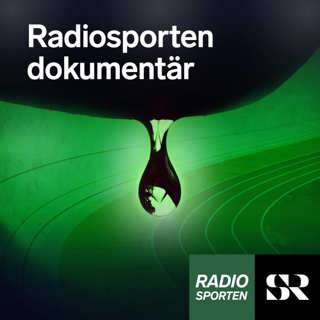
Living with motor neurone disease
Former England ruby captain Lewis Moody recently revealed he had been diagnosed with Motor Neurone Disease (MND), and our conversations give an insight into how lives can be overturned by this muscle wasting condition. Dr Mehboob in Canada was diagnosed five years ago and is now paralysed from the neck down. He is joined in conversation by his wife, Sophie, and Evy in Belgium, whose dad died last year 46 years after his diagnosis. MND is incurable. Over time, muscles weaken, affecting movement, speech eating and breathing. People over 50 are most likely to get the disease but there is evidence that elite athletes are also disproportionately affected. We bring together Narayana in India with James and Gillian in the UK, who were all diagnosed in their 30s, to share their experiences of living with the condition.
25 Okt 24min

The right thing: A deal with God
***This programme contains references to imprisonment, child abandonment and references to suicide which some listeners may find upsetting*** Since the 1950s, North Korea has been an authoritarian, isolationist state, and in practice there is no freedom of religion. Timothy Cho and his schoolteacher parents had learned to distrust and even fear Christianity. But the faith was going to play a significant role in Timothy’s life. At the age of nine, Timothy returned from school, to find that his parents had fled the country, leaving him behind. So, at the age of 17, he decided to follow them, but was captured by Chinese soldiers when he crossed the border and returned to prison in North Korea. Timothy made his second attempt at escape in the same year, and this time he was successful, arriving in the city of Shanghai with a group of other North Korean refugees. The group broke into the American school in Shanghai, thinking they would get asylum that way, but the school handed them over to the Chinese police. Back in prison, feeling hopeless and fearful, Timothy met a South Korean gangster, who taught him how to pray. Timothy made a deal with God, that if God gave him his freedom, he would dedicate his life to his faith.If you are If you are affected by anything you hear in this programme, it is important to talk to someone about it and get support. You can find help by visiting the Befrienders Worldwide website: befrienders.org
24 Okt 26min

G-Land: Surf and spirits
Off the coast of Java, Indonesia, lies G-Land, one of the world’s most legendary surf breaks, framed by a dense forest that was once home to the now-extinct Javan tiger. Alas Purwo (which literally means “Ancient Forest” or “First Forest” in Javanese) is considered one of the most mystical places in Java, with deep ties to Javanese spirituality and legend. Despite Java being one of the most crowded islands on Earth, this sacred jungle has remained largely untouched. In the 1970s, surfer Bobby Radiasa arrived from neighbouring Bali to visit American surfers who had set up a remote base there, hammocks and tree houses, what some say is the world’s first surf camp. He discovered both myth and magic in its waves. Also features an interview with Jim Banks, an Australian surfing legend known as a pioneer of big wave surfing and among the first group of surfers that arrived in Bali and later to G-land.
23 Okt 26min

The last cowboys
Truck drivers are often seen as symbols of freedom and independence. But how free is life on the road today, when the watchful eye of the system is always upon them? One of them is Finnish truck driver Tiia Rajala, who has dreamed of the open road since childhood. As we follow her across Europe, she masters her powerful machine and reflects on the stereotypes surrounding truckers. Sociologist Timo Aho explores what these stereotypes reveal about masculinity, class, and identity.
22 Okt 26min

Bonus: The Global Story - A Gazan journalist's diary
Reporting on the war in Gaza has only been possible because of the work of Palestinian journalists, because the Israeli government will not let foreign broadcasters – including the BBC – inside the territory to report freely, even now a ceasefire is in place. One month ago, freelance journalist Ghada Al-Kurd began sharing voice notes with us, talking about her life, her hopes, her family, and her days reporting in Gaza City. Her job is dangerous – almost 200 journalists have been killed in Gaza in the past two years – and even with a ceasefire in place, safety is far from reach. Ghada has continued to report for us through her displacements, sharing her treasured memories of pre-war Gaza, and her fears and hopes for its future.Image: Ghada Al KurdWith Asma Khalid in DC, Tristan Redman in London, and the backing of the BBC’s international newsroom, The Global Story brings clarity to politics, business and foreign policy in a time of connection and disruption. For more episodes, just search 'The Global Story' wherever you get your BBC Podcasts.
21 Okt 27min

Carl Brandon Strehlke: My search for the 15th Century artist Beato Angelico
Art historian Carl Brandon Stehlke is a world expert on the great 15th Century Florentine painter Fra Angelico, and this is his dream project: a historic, once-in-a-lifetime exhibition of the artist's work at the Fondazione Palazzo Strozzi and the Museo di San Marco in Florence. The show brings together more than 140 works from 70 different lenders and reunites the sections of Angelico's great altarpieces, scattered when Napoleon closed the city's churches and convents in the late 18th and early 19th Centuries, now fully restored and seen together for the first time in 200 years. Carl takes Maria Margaronis through the process of mounting such a massive exhibition from conception to grand opening. In the restorers' studios she hears how new technologies are revealing the limpid colours of paintings once thought beyond repair. And in the stillness of the San Marco convent Carl explains how Angelico's intimate, deeply humane frescos guided the friars' meditation and spiritual life, and how he fell in love with the artist's work nearly 50 years ago.
20 Okt 26min

A people’s history of Gaza
The back-story of Gaza, from the 1940s to the 2010s, told through the personal experiences of a wide variety of ordinary people - a teacher, a smuggler, a bird-watcher, musicians, doctors and others. Tim Whewell finds out how the tiny territory was created, how it first filled with refugees, how people lived, worked and died, how they survived invasions, wars and blockade, how hopes for peace rose and fell - under the rule of Egypt, Israel, the Palestinian Authority, and Hamas. How did refugees arrive in Gaza in 1948? Why is the Strip so important to Palestinian identity - and the wider Palestinian-Israeli conflict? How did living conditions gradually improve? How did the 1967 Six Day War change people's lives? Why did the two intifadas of 1987 and 2000 break out? When were the best times for Gazans in recent history? What changed for them after Hamas took control in 2007? Tim asks these and many other questions in this journey through the recent history of a sliver of land that has often dominated world news.
19 Okt 1h 1min

Reporting the impact of the Gaza ceasefire
Following the ceasefire in Gaza, this week has seen the release of hostages and prisoners on both sides and the beginning of the return of the remains of some of the deceased. Over the past two years, The Fifth Floor has been speaking to language service colleagues reporting on the conflict. This week, we reconnect with them to find out how networks of citizens on both sides have informed and provided new perspectives on their reporting. Amira Dakroury checked in from the BBC's Cairo Bureau where she's part of the team producing Middle East Diaries, formerly Gaza Lifeline; and from Tel Aviv, BBC Arabic's Michael Shuval reflected on reporting the stories of hostage families. Dr Tri Maharani's videos about how to treat snake bites are beginning to be well known in Indonesia. For fifteen years, she's worked to improve outcomes for snakebite victims in her country, where only one antivenom is currently available, but more than eighty species of poisonous snake are a threat. BBC Indonesian's Astudestra Ajengrastri spoke to her. This episode of The Documentary comes to you from The Fifth Floor, the show at the heart of global storytelling, with BBC journalists from all around the world.Presented by Faranak Amidi Produced by Laura Thomas and Caroline Ferguson
18 Okt 26min





















